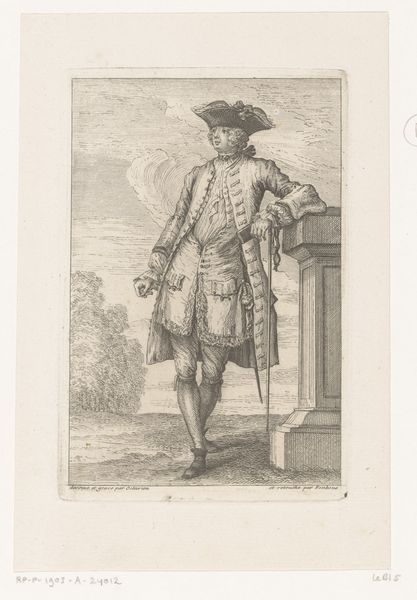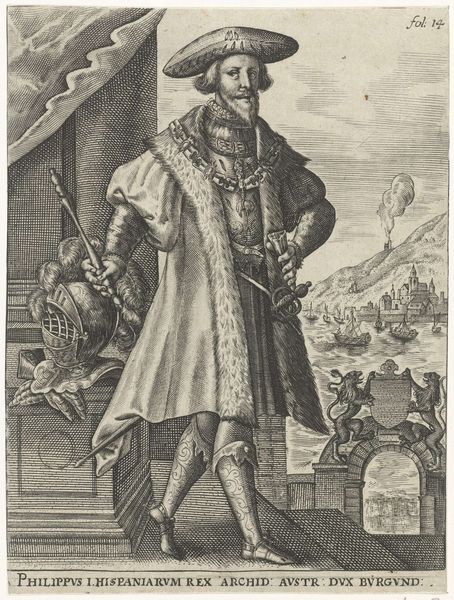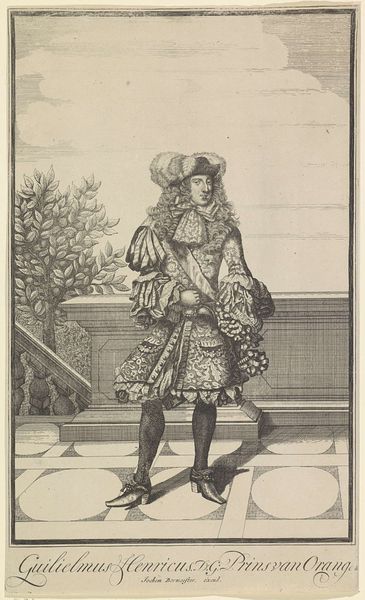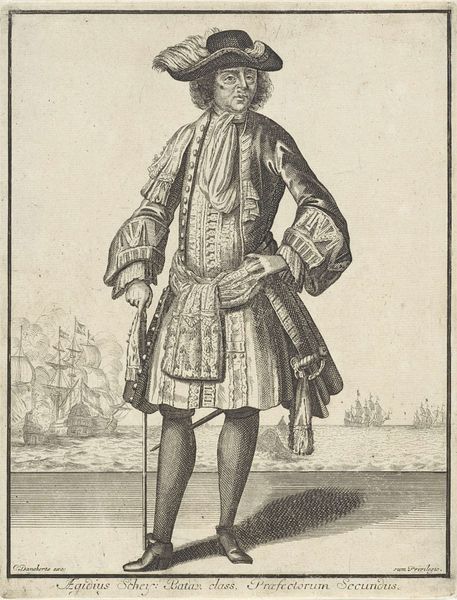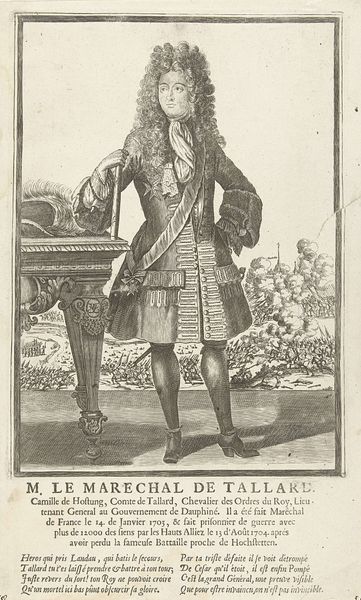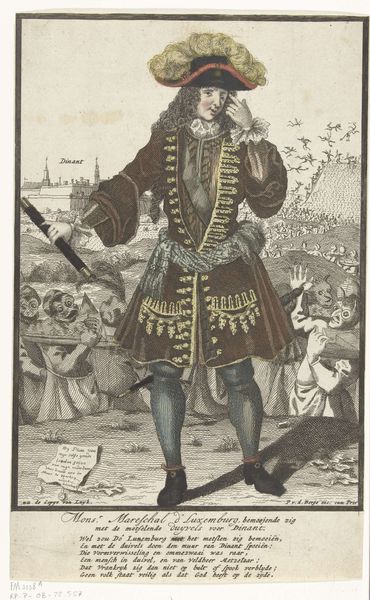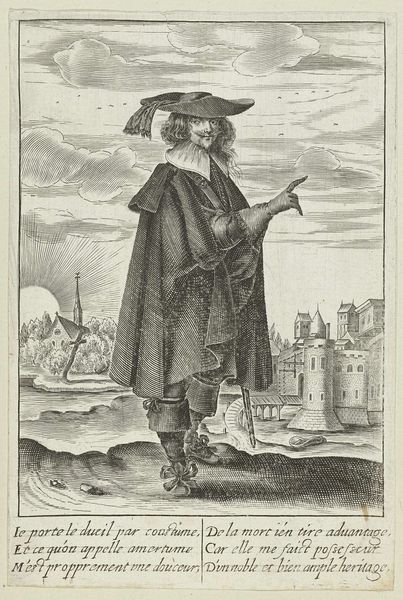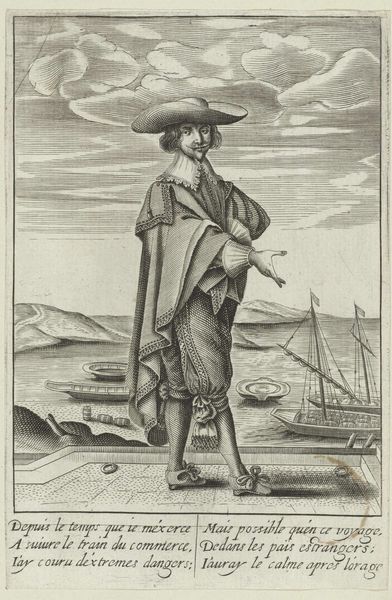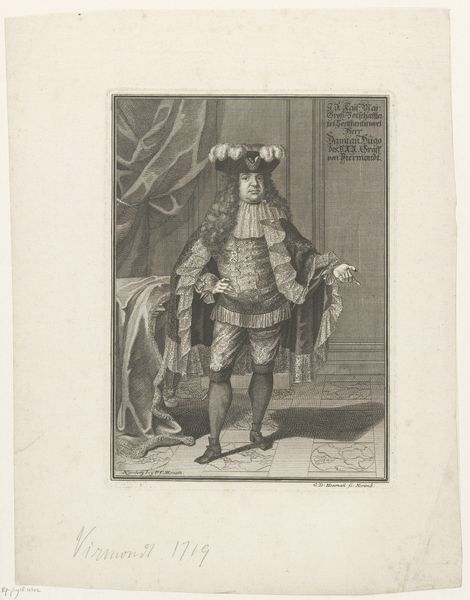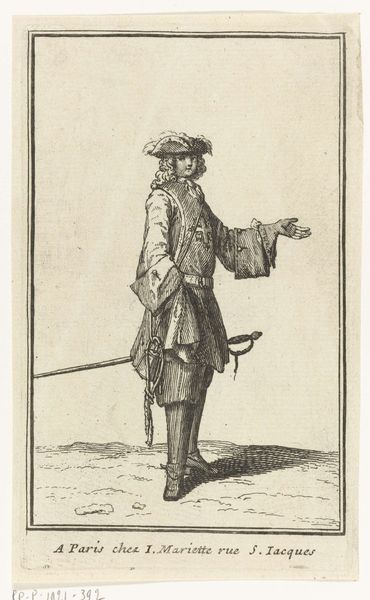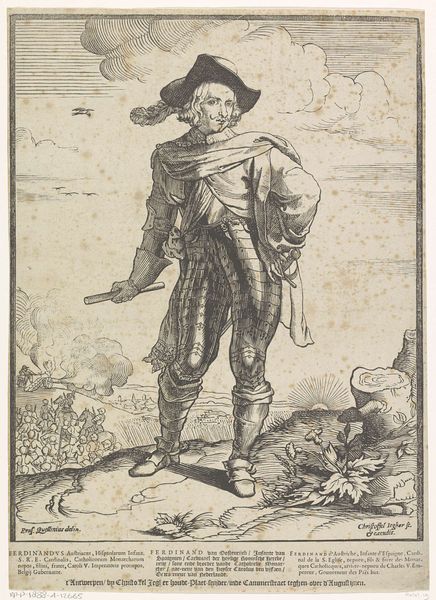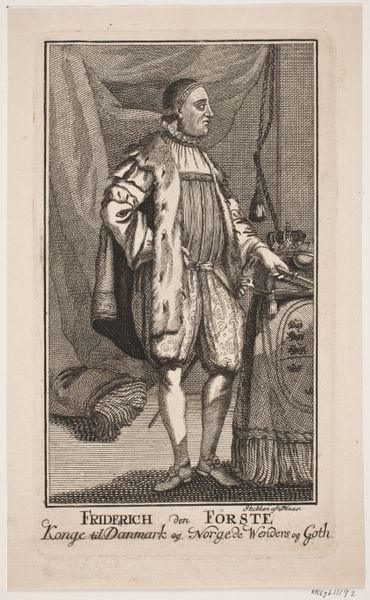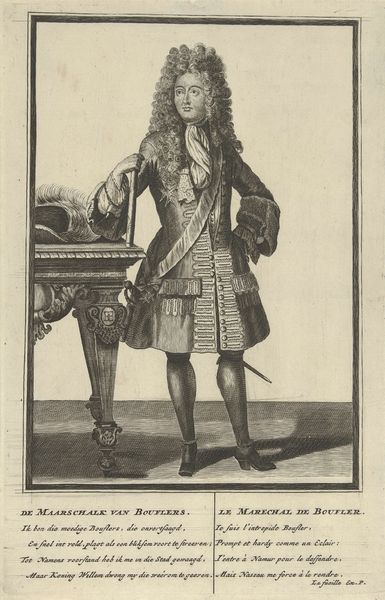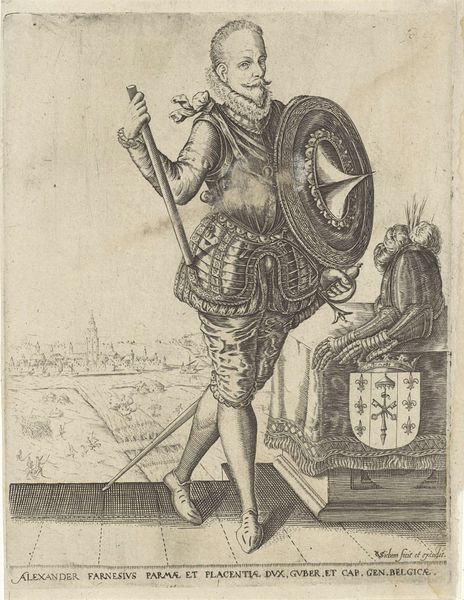
print, engraving
#
portrait
#
baroque
# print
#
old engraving style
#
figuration
#
line
#
cityscape
#
history-painting
#
engraving
#
realism
Dimensions: height 328 mm, width 186 mm
Copyright: Rijks Museum: Open Domain
Joseph Friedrich Leopold made this portrait of George Rooke using engraving, a printmaking process, sometime before 1726. The linear precision of engraving lends itself well to capturing Rooke’s elaborate garments. The crisp lines create the effect of fine fabric, intricate lace, and heavy embroidery – all signifiers of wealth and status. Look closely, and you'll notice how the technique also models Rooke’s face, giving him a sense of presence and authority. Engraving involves using a tool called a burin to carve lines directly into a metal plate. Ink is then applied to the plate and wiped away, remaining only in the incised lines. The plate is pressed onto paper, transferring the image. It’s a labor-intensive process, demanding skill and patience. The resulting prints, like this one, could be widely distributed, making Rooke's image accessible to a broad audience. The choice of engraving as a medium speaks volumes about the intention behind the portrait, which elevates Rooke through meticulous craftsmanship. It challenges the traditional hierarchy that often separates printmaking from the so-called “fine arts”.
Comments
No comments
Be the first to comment and join the conversation on the ultimate creative platform.
